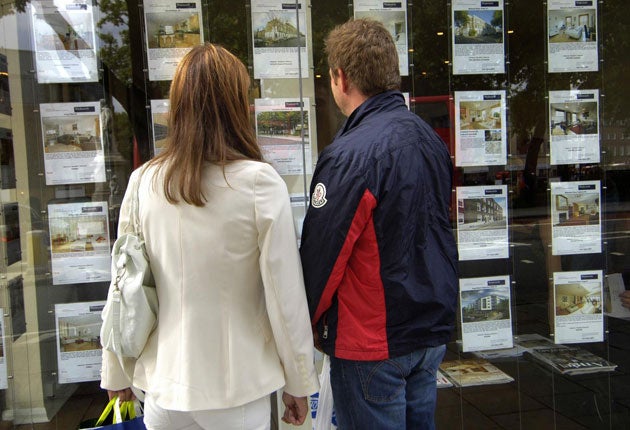Property news update: Who is the average first time buyer?
Plus Help to Buy in the North East, and the Edinburgh property market

The number of first time buyers increased 42 per cent year-on-year in February, according to LSL Property Services. There were 22,400 first time buyer transactions in February 2014, up from 15,800 in February 2013.
Eight out of ten of first time buyers surveyed said they expect prices to rise in the next year, with nine per cent expecting prices to rise by more than 10% (although five per cent predict house prices will fall).
Two-thirds of first time buyers said they wanted to buy a house rather than a flat in February, with just under half looking for a house with three or more bedrooms, and a further quarter looking for a two bedroom house.
Overall, the average first time buyer was 31 and earning an annual salary of £36,330, although in London and the South East they were 33 and earning £41,885. Half of buyers in London and the South East said they would consider buying a new property, compared to a quarter in the rest of the UK.
First time buyers in London paid more than three times as much as first time buyers in Northern Ireland (£280,477 compared to £91,583). The South East and the South West were the second and third most expensive regions, with average purchase prices of £191,242 and £169,672 respectively.
Help to Buy in the North East
Help to Buy Equity Loans are responsible for one in three new homes sales in the North East, according to Countrywide, with figures up to 50 per cent in some areas. By comparison, just under one in 10 in London have been funded this way.
Its figures also suggest that in the first three months of this year, an average of 12 buyers are chasing each property on the market, the highest level since 2008.
Grenville Turner, Chief Executive, Countrywide, said: "Claims that the Help to Buy Scheme is causing a housing bubble are far from the truth and the facts speak for themselves. As a proportion of transactions both parts of Help to Buy together support only two per cent of transactions in London compared with 10 per cent in the North West, where support is most needed.
"The scheme has had a positive impact on house builder confidence with many now believing that they can sell what they build, which as we know means they will build more. The extending of the equity loan guarantee allows developers to plan with some certainty that demand will continue to exist in 12 months’ time and goes some way to bridging the increasing gap between new supply and demand for property in the UK."
Edinburgh property market
Property prices in Edinburgh increased by 1.3 per cent in the first three months of 2014 and by 4.6 per cent year-on-year, according to figures from Knight Frank. Price increases were particularly strong in the New Town and West End areas, up by 1.5 per cent between January and March. Edinburgh also accounted for nearly two thirds of all £1m+ Scottish property sales in 2013
Edward Douglas-Home, head of Edinburgh City Sales, said: "Many vendors are cautious about putting their home on the market before the Independence Referendum in September. However, our analysis suggests that this caution may be misplaced, with the number of new applicants registering their interest in buying a home up significantly so far this year and the number of transactions completed in the three months to March more than double that of the same three month period last year."
Join our commenting forum
Join thought-provoking conversations, follow other Independent readers and see their replies
Comments
Bookmark popover
Removed from bookmarks